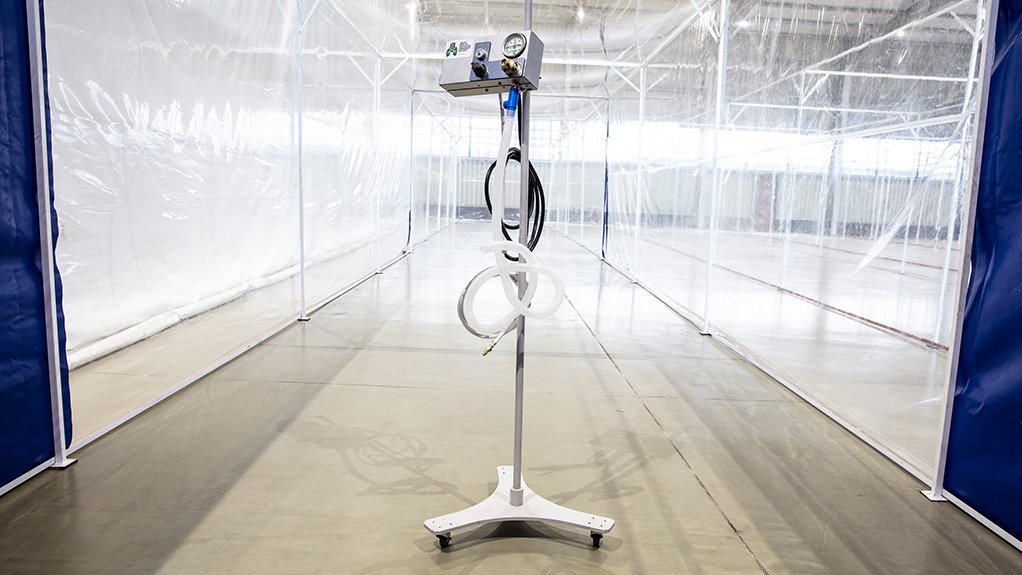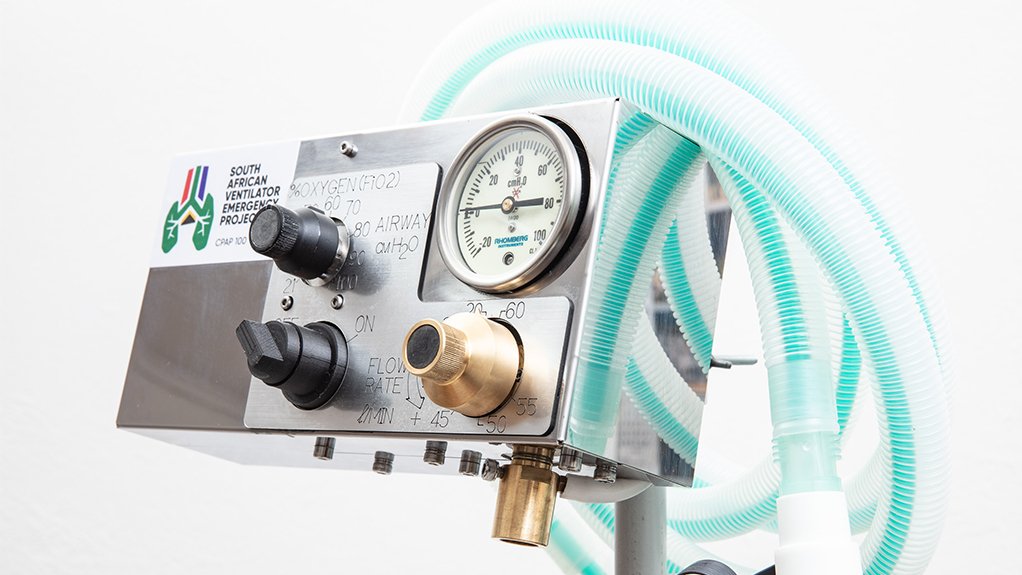The Solidarity Fund has concluded a contract with the South African Emergency Ventilator Project (SAVE-P) to produce 2 000 new ventilators that will be donated to the national Department of Health.
SAVE-P is a Durban-based nonprofit organisation (NPO) started by local businessman Justin Corbett and Dr Greg Ash.
The NPO will now start production of its first order of 2 000 CPAP 100 ventilators.
The project team is also in talks with concerned organisations in several other African countries, which have indicated an interest in procuring ventilators to help them with their own Covid-19 treatment programmes.
In addition, the team is providing a similar group of companies in India with the technical know-how to build their own ventilators in the near future.
SAVE-P says it has sufficient capacity to increase production to cope with the expected needs of South Africa.
It describes the CPAP 100 device as an affordable, reliable solution that has been designed and developed to go into production quickly. The units also require little maintenance and minimum training for non-intensive care qualified nurses.
SAVE-P says it has received expedited licensing from the South African Health Products Regulatory Authority to manufacture the devices.
“The continuous positive airway pressure (CPAP) devices supply a high flow of oxygen and air blended to the patient’s requirements at a pressure slightly above normal,” says Ash.
“The higher oxygen concentration and pressure help the oxygen pass into the Covid patients’ blood – keeping their oxygen percentage up.
“The slight pressure can also help open up closed air sacs in more severe patients.
“These [devices] are not a replacement for full mechanical high-tech ventilators, which are still needed for the most severe cases who cannot breathe adequately for themselves. It can, however, turn around the moderately severe cases and keep them off a ventilator at a fraction of the cost of a ventilator and without the intensive nursing capacity,” adds Ash.
“The device, together with a humidifier, can also supply the blended air and oxygen required for high flow nasal canula treatment, which has been successfully used in the Western Cape.”
The SAVE-P team comprises a group of South Africans from across the country, including engineers, designers, technologists and doctors.
SAVE-P says these volunteers have all recognised the effort to redesign CPAP machines that could be manufactured with existing local technology as a critical strategy for all national hospitals treating patients affected by Covid-19.
“SAVE-P has grown to more than 90 volunteers who have been working around the clock to understand the needs of doctors and hospitals, researching and testing technology, designing the CPAP 100 and coordinating with medical professionals and committed public servants.”
The team have also produced prototypes at their own expense.
“This project would not have been at all possible without the incredible support and generosity from so many players in our supply chain,” says Corbett.
“Our special thanks go to Claudio Maccaferri from MCR Manufacturing, Graham Ellet from Reef Engineering, the team at Bosch SA (including Africa president Markus Thill), Lionel Mccawl of Dowclay Products, Willie Conradie of Executive Engineering, Simone Rudolph-Shortt of Isohealth SA and Andre van de Wetering of Afrit.
“The team was pulled together with the assistance of National Association of Automotive Component and Allied Manufacturers, which played a pivotal role in the early stages of this effort.”
EMAIL THIS ARTICLE SAVE THIS ARTICLE ARTICLE ENQUIRY
To subscribe email subscriptions@creamermedia.co.za or click here
To advertise email advertising@creamermedia.co.za or click here













